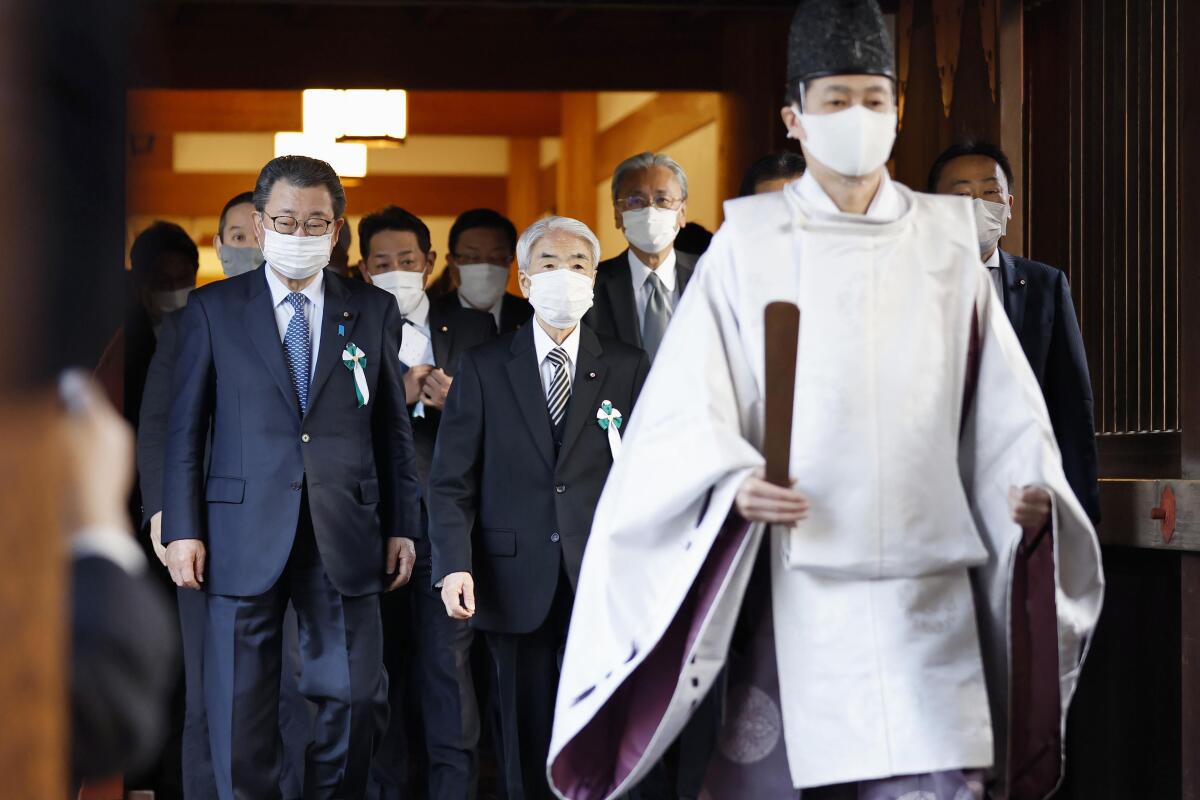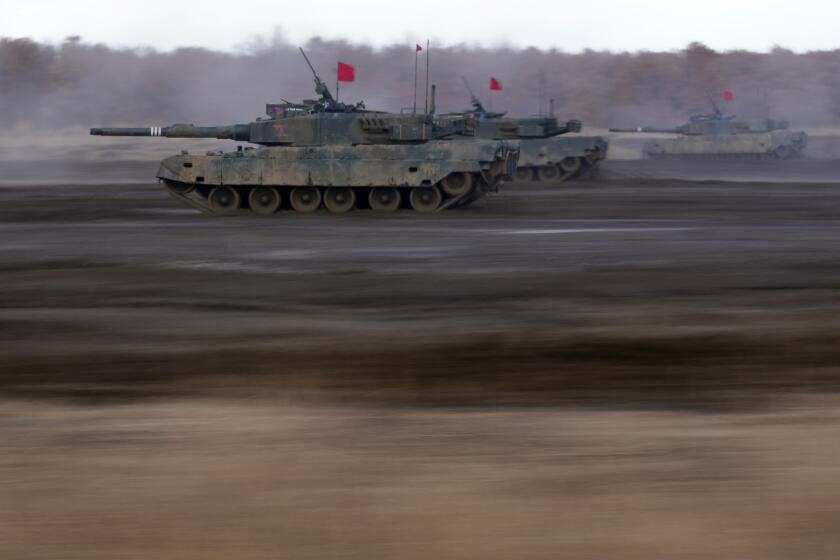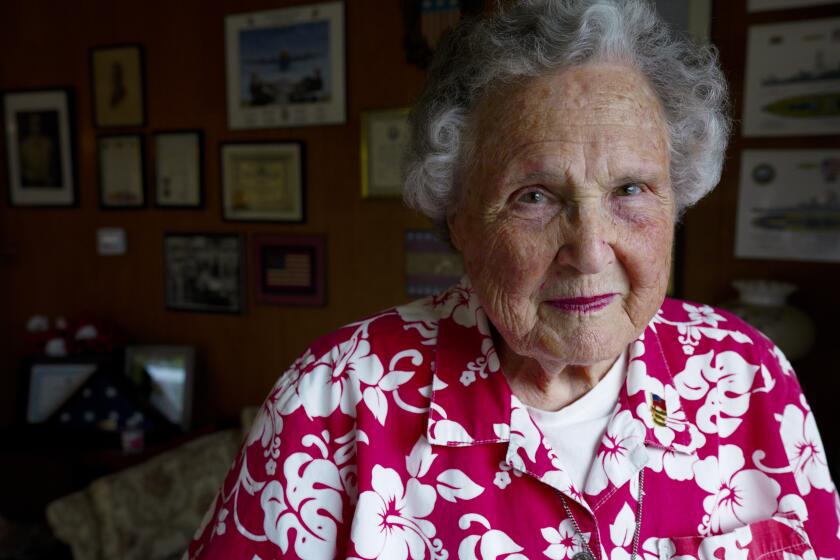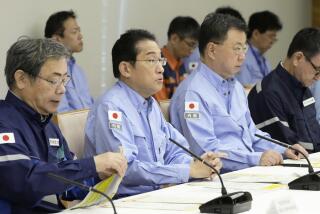Scores of Japanese lawmakers visit shrine honoring convicted war criminals

TOKYO — A group of about 100 Japanese lawmakers Tuesday prayed at a controversial Tokyo shrine viewed by China and the Koreas as a symbol of Japanese wartime aggression, 80 years after Japan’s attack on Pearl Harbor.
Many of the lawmakers, including nine vice ministers and special aides in the Cabinet of Prime Minister Fumio Kishida, are members of Kishida’s conservative ruling party.
Japan’s attack on Pearl Harbor on Dec. 7, 1941, brought the United States into World War II. In Japan, the date was Dec. 8.
Victims of Japanese aggression during the first half of the 20th century, especially those from China and Korea, see the Yasukuni Shrine as a symbol of Japan’s militarism because it honors its war dead, including convicted war criminals.
Visits and donations to the shrine by Japanese political leaders are seen by critics as a sign of a lack of remorse over the country’s wartime actions.
Chinese Foreign Ministry spokesperson Zhao Lijian said the lawmakers’ visit was a “deliberate move and provocation.”
The Japanese military is mounting a major exercise on Hokkaido island in a display of might amid a recent increase in Chinese and Russian maneuvers.
“The Japanese dignitaries’ visit to the shrine again shows Japan’s wrong attitude towards the history of aggression,” Zhao said.
South Korea’s Foreign Ministry expressed “deep concern and regret” Tuesday over the “large-scale” visit to a shrine that “beautifies Japan’s colonial pillage and war of aggression.” It said in a statement that Japan instead should show “humble reflection and sincere remorse” about its wartime past to win back the trust of the international community.
Hidehisa Otsuji, a senior member of Kishida’s party, said the group prayed to the spirits of the war dead to protect Japan from the COVID-19 pandemic.
It was the first time the group has prayed at Yasukuni since the pandemic began early last year.
Joedy Cronin Adams’ father, a naval commander, transferred from Coronado to Kaneohe Naval Air Station in Hawaii. The family lived near Pearl Harbor.
The lawmakers are members of a parliamentary group that has regularly paid tribute at the shrine on the anniversary of the end of World War II on Aug. 15 and during the shrine’s spring and autumn festivals.
Otsuji told reporters that he wished Kishida would visit the shrine soon.
Kishida and Cabinet ministers did not join the group visit Tuesday. The prime minister donated religious offerings called masakaki to observe the shrine’s autumn festival.
Japanese leaders have avoided visiting the shrine while in office after China and the Koreas reacted with outrage to a visit by former Prime Minister Shinzo Abe in 2013.
Earlier this year, Defense Minister Nobuo Kishi, who is Abe’s younger brother, visited the shrine.
More to Read
Sign up for Essential California
The most important California stories and recommendations in your inbox every morning.
You may occasionally receive promotional content from the Los Angeles Times.












